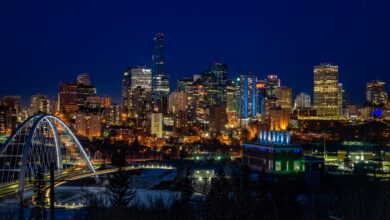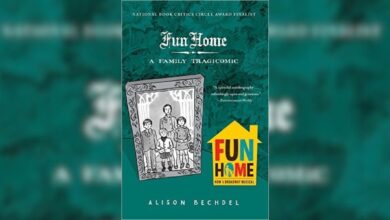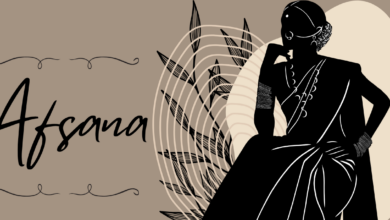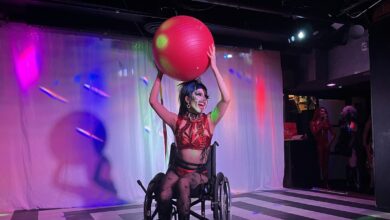Q&A: Nisha Patel on her debut poetry collection COCONUT
The Edmonton poet hopes this book serves as a hand extended outwards to the brown poetry community.
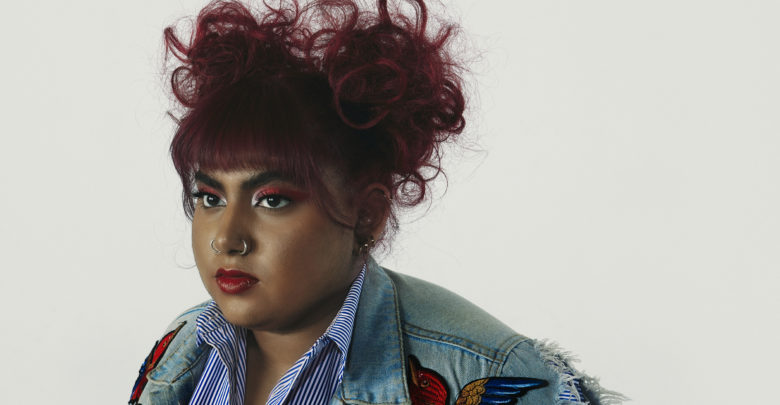 Aaron Pedersen
Aaron PedersenNisha Patel is an award-winning Indo-Canadian poet, public speaker, artist, and University of Alberta alumni.
While being the current Poet Laureate for the City of Edmonton, she has also debuted her poetry collection COCONUT, delving into Patel’s experiences of racism, sexuality, empowerment, grief, and love.
The Gateway reached out to Patel to talk about her poetry, identity, and what her future holds.
Responses have been edited for brevity and clarity.
Q: To start us off, could you describe how your poetry career began, and what drew you towards poetry?
Patel: After I left university, I started taking part in local poetry readings with the Breath in Poetry community, which was a collective that had existed for many years. Through that, I was given the opportunity to start performing more often. I was at events, and I started writing for special events as well, going all over the place. Since then, I made the switch to trying to become a full-time author or to having a career in an art practice, even if it wasn’t full-time performing. That was something I decided three years into my poetry venture. Now I work in this space where I’m trying to really crystallize and cement how my career is going to look for the next few years in poetry.
Q: Next, would you be able to tell me about your newly released poetry collection COCONUT?
COCONUT is my debut poetry collection. A full length collection, as we call it. A lot of the poems in COCONUT are actually just amalgamations of my past work. They’re little bits of different parts of my identity both as a woman, a woman of color, a queer woman, someone who has struggled with illness and has struggled with abusive relationships, and all the things that go along with being alive in a body today — a lot of those struggles and challenges.
There isn’t one unifying theme throughout the book. It’s mostly me working through the different aspects of my identity, coming to terms with it, and writing about it in a way that invites others to understand my perspective.
Q: Why did you choose the title COCONUT?
COCONUT is a racial slur that refers to someone who is brown on the outside, and white on the inside. And this slur is used often very laterally against other brown folks from brown folks. It’s used to imply that there is some sort of racial purity to how to act like a proper brown person. That any proximity to whiteness is something that is not desirable. I think taking that term, and labeling my book after it, was a way for me to reclaim meaning. To give it my own definition to say that, even if I am a diaspora artist who has elements of my identity that are based in Western society, and other elements that have come from my own Indian heritage, I’m no less a brown person. I’m no less than Indian person. That this is what a coconut looks like today.
Q: Is there something you feel COCONUT brings to the poetry community that the community was previously lacking?
I think right now, there’s still a growing need for having diverse stories platformed at the local and the national level. We’re not seeing a lot of Indian or brown poets reach that level of success, where their story becomes something many different people can access.
For myself, when I started out in the poetry community in Edmonton, and in Canada, I didn’t have role models. I didn’t have mentors who came from the same community. I didn’t have other brown poet friends for the longest time that were writing about the things that I was writing about. My experience was on its own. I felt very isolated.
I really want this book to be a hand extended outwards to the community that is just starting to come to more relevance. Even though we’ve always been here, we haven’t been able to connect with others. We haven’t been given a platform in Canadian literature.
Q: Has the Edmonton community shaped your poetry in any way?
Of course; Edmonton is such an interesting community to come up in. I think the artistic community especially is incredibly forgiving. It’s a really great place to understand where your art comes from, to experiment with it, and take it places you might not have imagined before.
There’s a lot of people working in the sector who want to see you succeed; they genuinely want to see your success come without a cost to other people. They want everyone to be uplifted, and Edmonton, because of that, is an ideal place to grow as an artist. Some of the themes that I’ve touched upon in my tenure as Poet Laureate for the City of Edmonton have been things that I think affect people who live here: day-to-day life, life in the pandemic, life with public officials in the city that we interact with. All of these things have been big influences on my work.
Q: This might be a tough question, but do you have a favourite poem, or couple of poems, in COCONUT?
I think my favourite poem in the book is actually the first poem. The title is “fat girl tweets about pussy.” There’s a lot in [the book] that brings me joy, even though some of these poems are sadder than others. I would say “sex toys” is one I really enjoy, because it speaks to really queer themes and that’s important to me.
Q: Now that you’ve released COCONUT, what is next for you, and your future?
I am working on my second collection right now, trying to put that third draft together at this moment, and then find a publisher that will take it on. Maybe even find an agent who will be able to help me with that process. That book is very different in theme. It’s all about disability poetics, or mad poetics, that talks about illness, and what it’s like for me to live in a disabled body. It’s going to be very different from my current book right now. It really relies on visual elements, and stuff like that. So I’m really hoping this project, which may even take a few years before it reaches the public, is something that can nourish me and grow with me.
To that extent, I’m also going to be pursuing post-secondary, again, in graduate studies. I’m going to start out at Queen’s University, and hopefully make my way back to Edmonton to try to do more graduate work, once I have those credentials. Eventually, in the long term, I really want to be able to teach. I want to be able to be like a university professor. So it is a long journey to get to that point — you really do need a lot of experience. And so I’m excited to try to intentionally manifest that through small steps right now.

